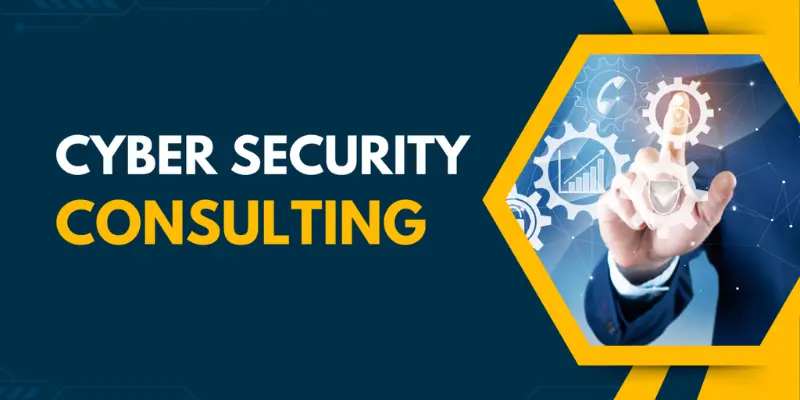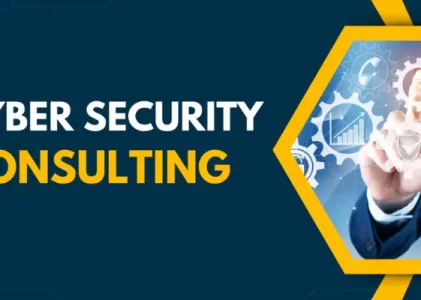Digitalizing the Goods and Services Tax (GST) system has undoubtedly brought significant improvements in tax compliance, transparency, and ease of business. However, this shift to an online tax ecosystem has also heightened the risk of cyber threats, such as data breaches, fraud, and unauthorized access to sensitive financial information. GST consultants, who handle a considerable amount of confidential client data, are prime targets for cybercriminals. Therefore, improving Cyber Security in their operations is paramount. GST consultants can also benefit from enrolling in a Cyber Security Course in Chennai to strengthen their security measures, which will equip them with the knowledge to protect their clients and businesses better. In this blog, we’ll explore how GST consultants can enhance their Cyber Security practices to protect their clients and businesses.
Understand the Cyber Security Threat Landscape
The first step for any GST consultant to improve Cyber Security is understanding the current threat landscape. Cyber threats constantly evolve, and consultants must be aware of the latest risks that could affect their operations. Some common threats include:
- Phishing Attacks: Fraudulent emails, messages, or websites that steal sensitive information like passwords or client details.
- Ransomware: Malicious software that locks files or systems, demanding payment to restore access.
- Data Breaches: Unauthorized access to confidential data, often leading to identity theft or financial loss.
By staying informed about these threats, GST consultants can take the necessary steps to protect themselves and their clients from potential attacks. Additionally, enrolling in GST Training in Chennai can provide valuable insights into the latest tax regulations and help them understand the integration of Cyber Security measures within the GST framework, ensuring a more secure and efficient service for their clients.
Implement Strong Authentication Measures
Strong authentication practices are the most effective ways to improve Cyber Security. GST consultants should adopt multi-factor authentication (MFA) for their online accounts, especially for those related to GST filings and tax compliance platforms. MFA requires users to provide two or more verification factors, such as a password and a fingerprint or a one-time passcode sent to their mobile phone, making it harder for cybercriminals to gain unauthorized access.
It’s also essential to ensure that strong, unique passwords are used for all accounts and systems. Consultants should encourage clients to do the same, particularly when accessing GST portals or sharing confidential financial data. Understanding the Key Components of GST is crucial for consultants, as this knowledge helps them better guide clients in securing sensitive tax-related information and maintaining compliance with security protocols.
Secure Client Data with Encryption
Data security should be a top priority for GST consultants, as they deal with sensitive financial information daily. One of the most effective ways to protect client data is through encryption. By encrypting data, consultants can ensure that even if unauthorized individuals gain access to their systems, they won’t be able to read or misuse the data.
Encryption should be applied to data at rest (stored data) and in transit (data being transmitted). Whether sending sensitive documents via email or storing files on a cloud server, encryption adds layer of protection to prevent unauthorized access.
Regularly Update and Patch Software
Cybercriminals often exploit vulnerabilities in outdated software to launch attacks. For GST consultants, using up-to-date software is critical to maintaining strong Cyber Security. This includes GST-related software, operating systems, web browsers, and any third-party applications used for day-to-day operations. To stay ahead of emerging threats and enhance their knowledge, GST consultants can benefit from a Cyber Security Online Course, which provides valuable training in identifying and mitigating risks associated with outdated or vulnerable software.
Regular updates and patches should be scheduled to ensure that vulnerabilities are fixed promptly. Additionally, consultants should use trusted, legitimate software vendors and avoid downloading programs from unverified sources.
Conduct Employee Cyber Security Training
GST consultants who work with a team of employees must prioritize regular Cyber Security training. Employees should be aware of the latest cyber threats, how to recognize phishing attempts, and best practices for keeping sensitive information secure. Training should cover:
- Identifying phishing emails or suspicious communication
- Using secure file-sharing methods
- Creating strong passwords
- Reporting potential security incidents promptly
Employee training should be an ongoing process, with periodic refresher courses to ensure that the team stays informed and vigilant.
Use Secure Communication Channels
Communication with clients is a vital part of a GST consultant’s work, and it’s crucial that sensitive information is shared through secure channels. Consultants should use encrypted messaging apps or secure portals for sharing tax-related documents and client information. Avoid sending sensitive data through unsecured methods such as regular email or unprotected file-sharing services.
It’s also essential for GST consultants to educate their clients on the importance of secure communication and encourage them to use secure channels when sharing sensitive information. As part of this, consultants should provide a Checklist for GST Software Providers, ensuring that the platforms used for sharing financial data and submitting GST filings adhere to the highest security standards and offer encrypted communication options.
Backup Critical Data Regularly
Ransomware attacks can have a devastating effect on a business if critical data is lost or corrupted. One of the best ways to protect against this is to regularly back up important files and client data. By storing backups in secure, off-site locations or on encrypted cloud servers, GST consultants can minimize the risk of losing valuable information in the event of a cyber attack.
Work with Trusted Third-Party Vendors
Many GST consultants rely on third-party vendors for services like cloud storage, software tools, and digital communication platforms. When selecting vendors, it’s essential to choose those with a proven track record in Cyber Security. Consultants should evaluate the security measures of any third-party vendors they work with, ensuring that they comply with industry standards and provide robust protection for client data.
Additionally, consultants should regularly review vendor contracts to ensure they understand the security measures and liabilities in place, particularly when outsourcing services that involve handling sensitive information. This is especially important when dealing with Cyber Security for GST Payment Gateways, as ensuring that payment gateways are secure will protect both the consultant and their clients from potential fraud or data breaches during transactions.
In a world where cyber threats are becoming more sophisticated, GST consultants must take proactive steps to safeguard their clients’ sensitive financial data. By implementing strong authentication measures, securing data with encryption, keeping software updated, and investing in Cyber Security training, consultants can minimize the risks associated with digital tax compliance.
Cyber Security is an ongoing process, and it requires consistent effort to stay ahead of potential threats. By adopting the best practices outlined in this blog, GST consultants can improve their Cyber Security posture, ensuring the safety and trust of their clients while maintaining the integrity of their business operations.
Also Read: Why is GST Knowledge Essential for Corporate Professionals?
Comments
0 comments

